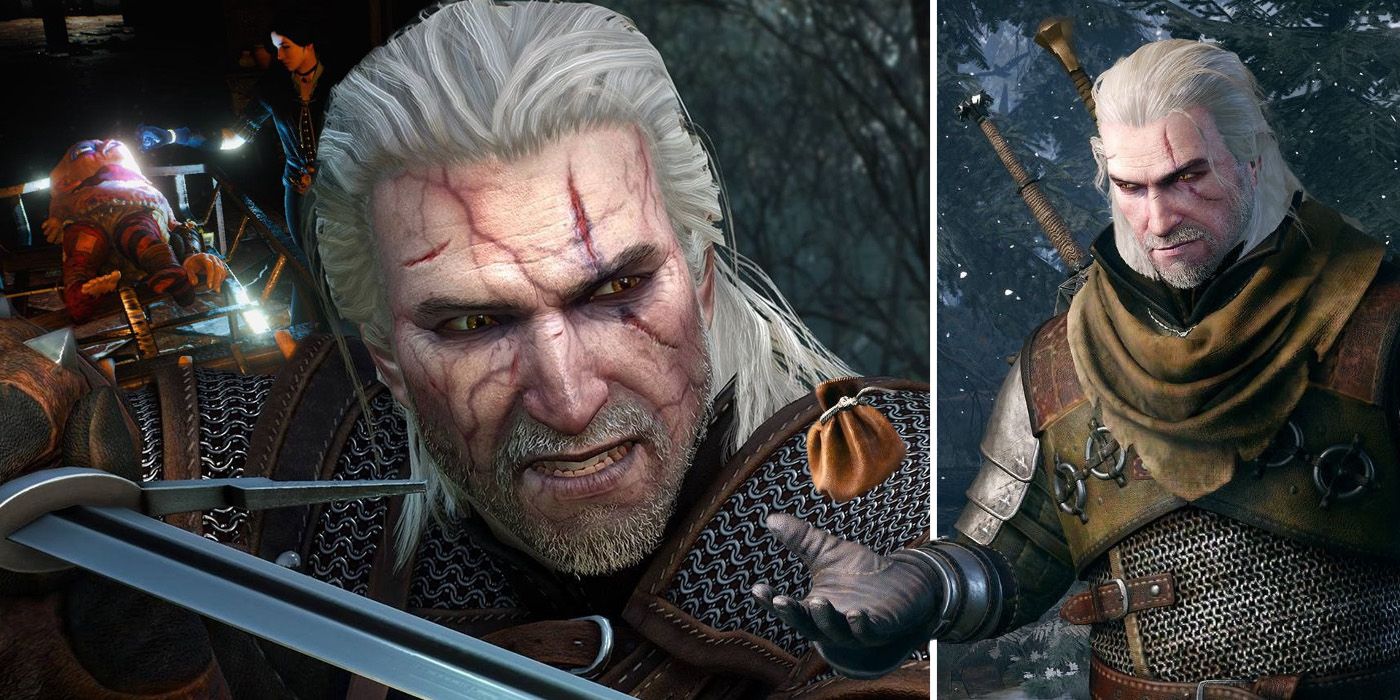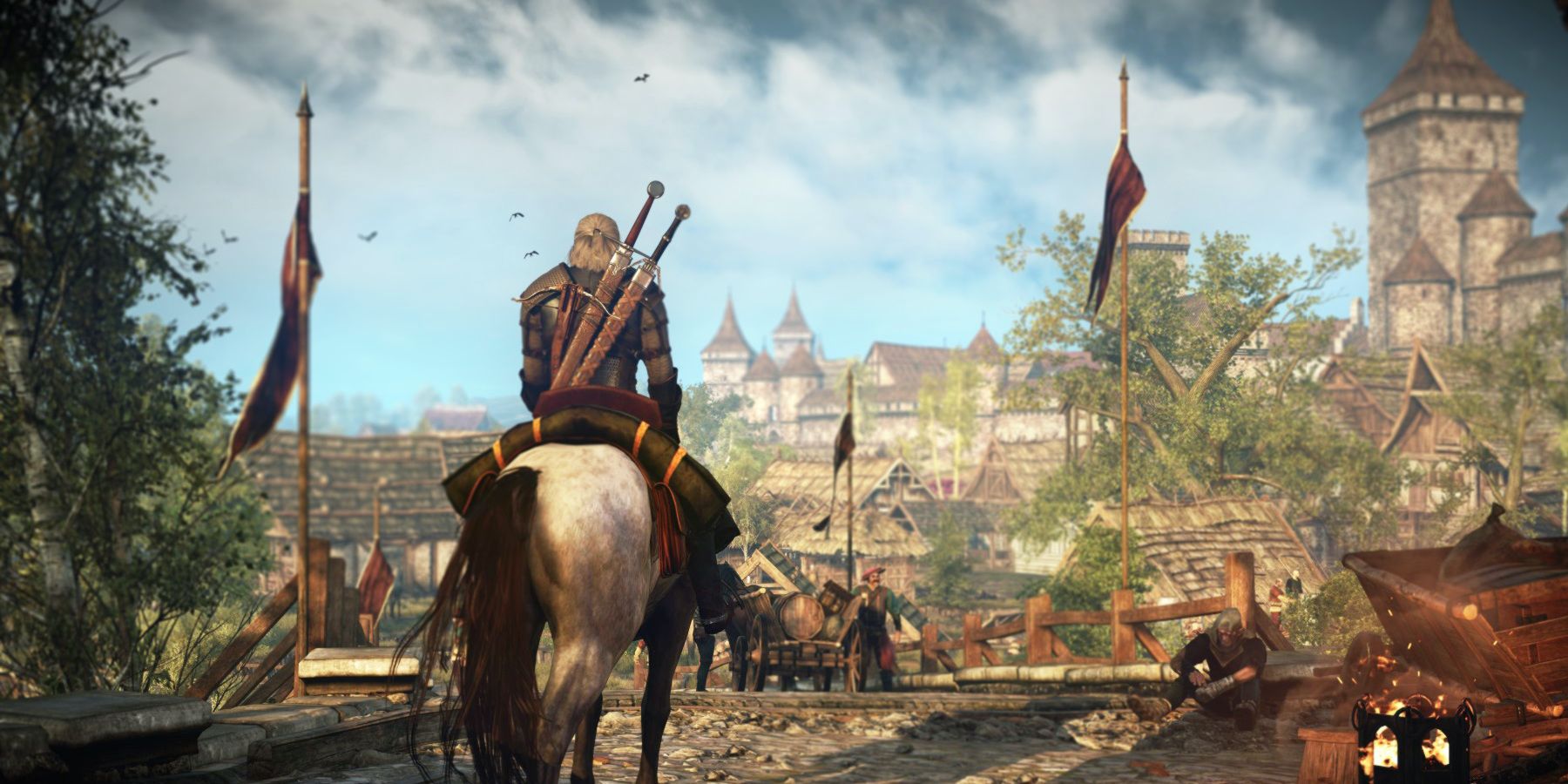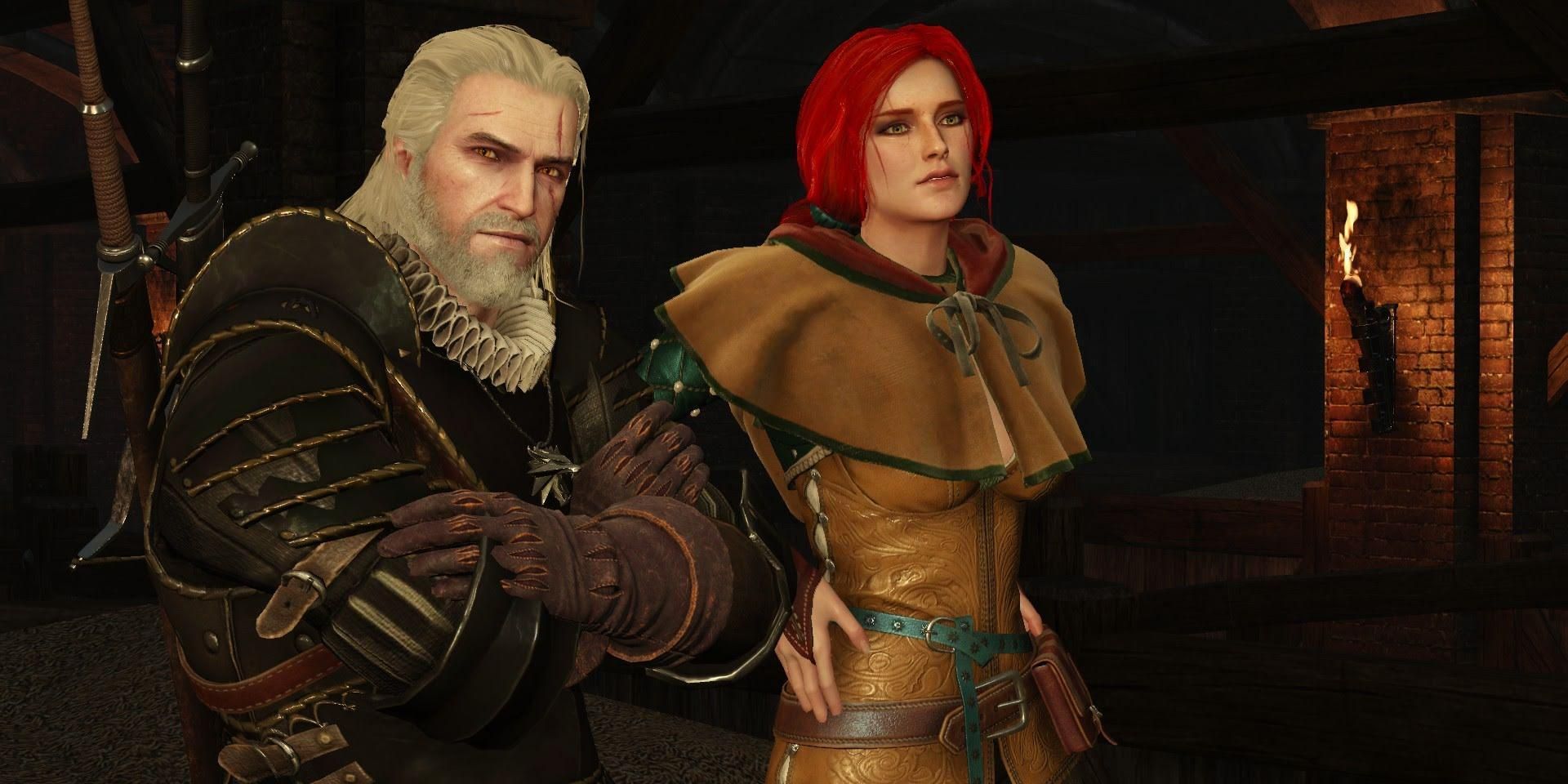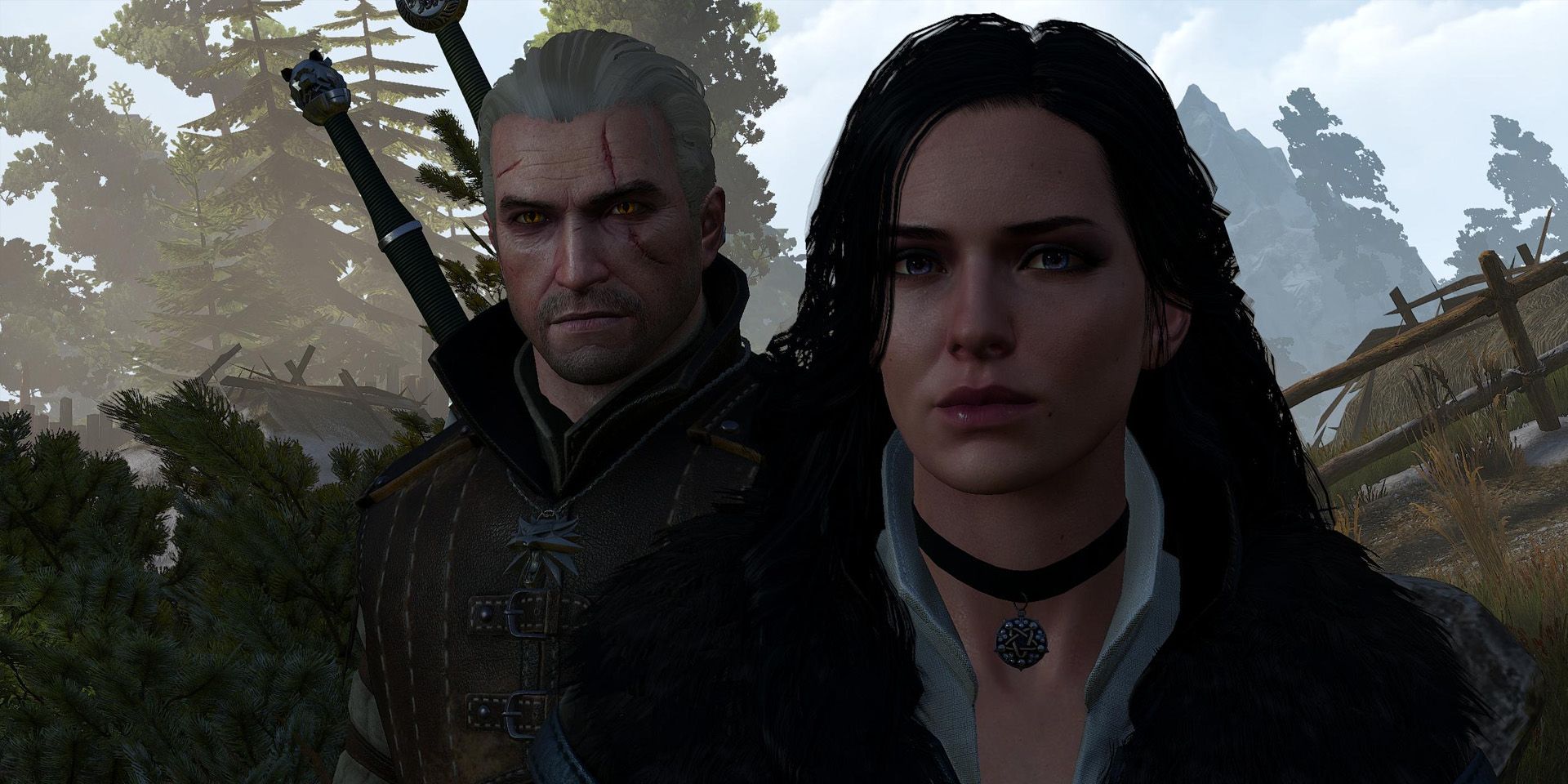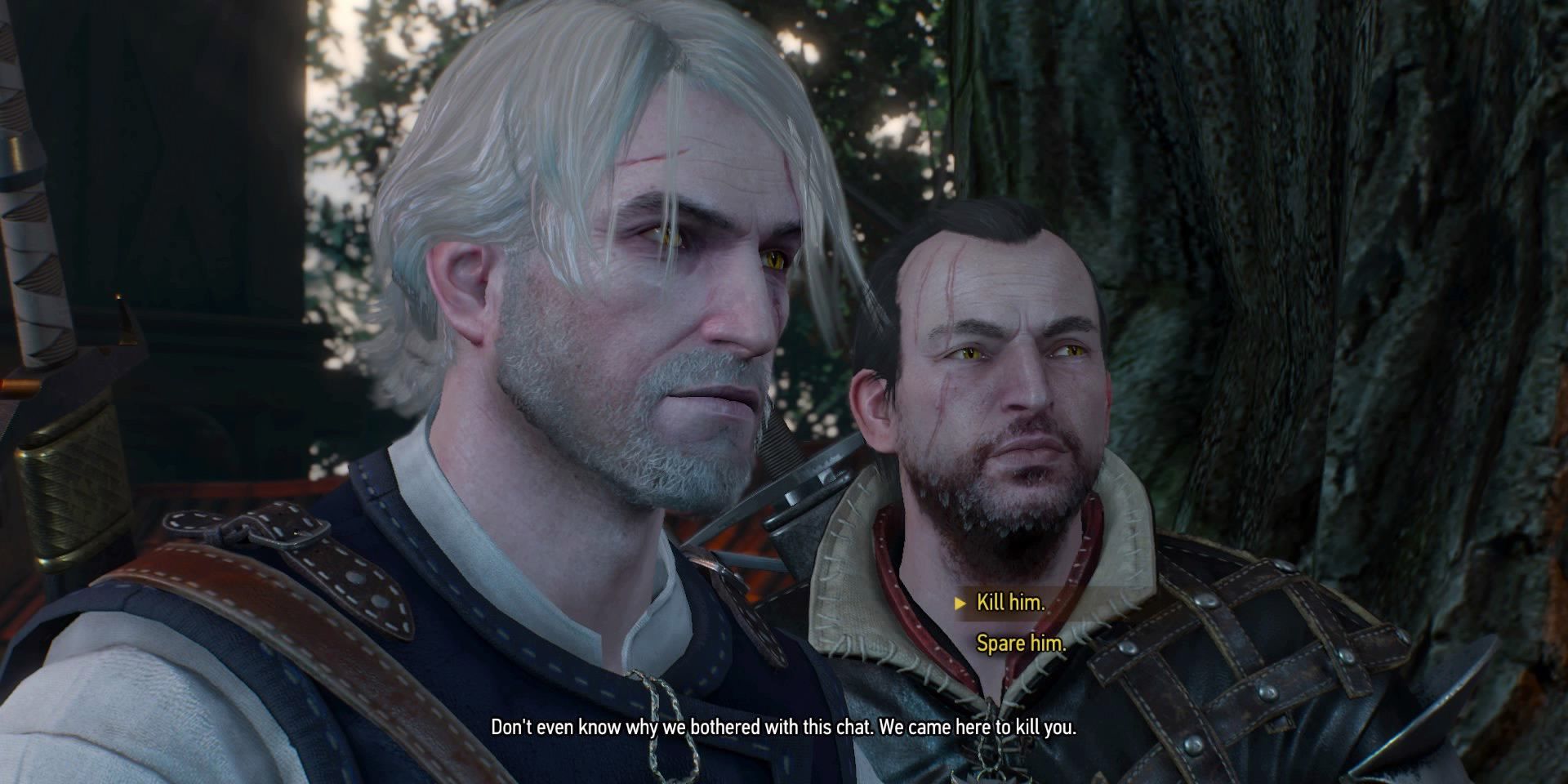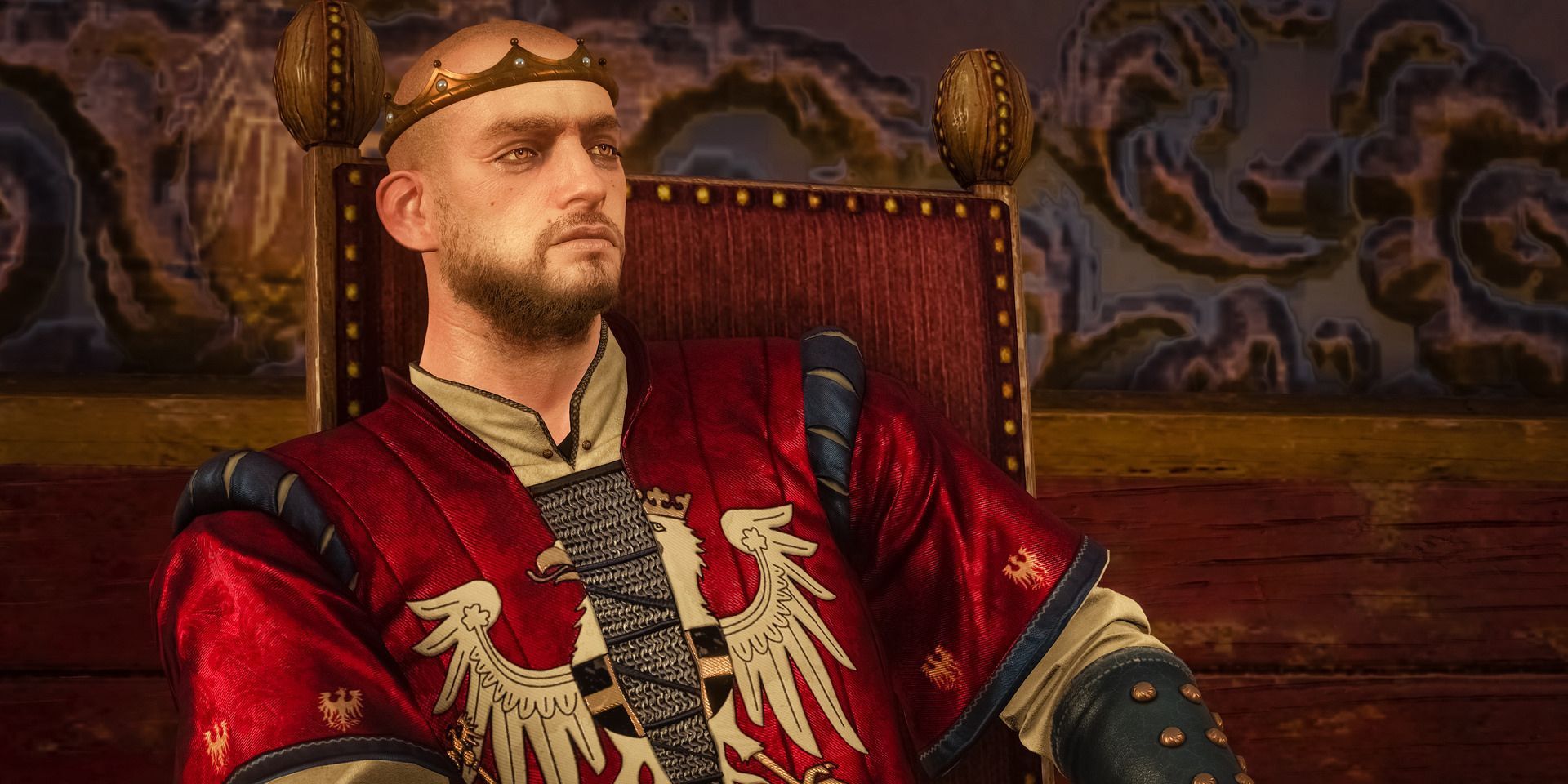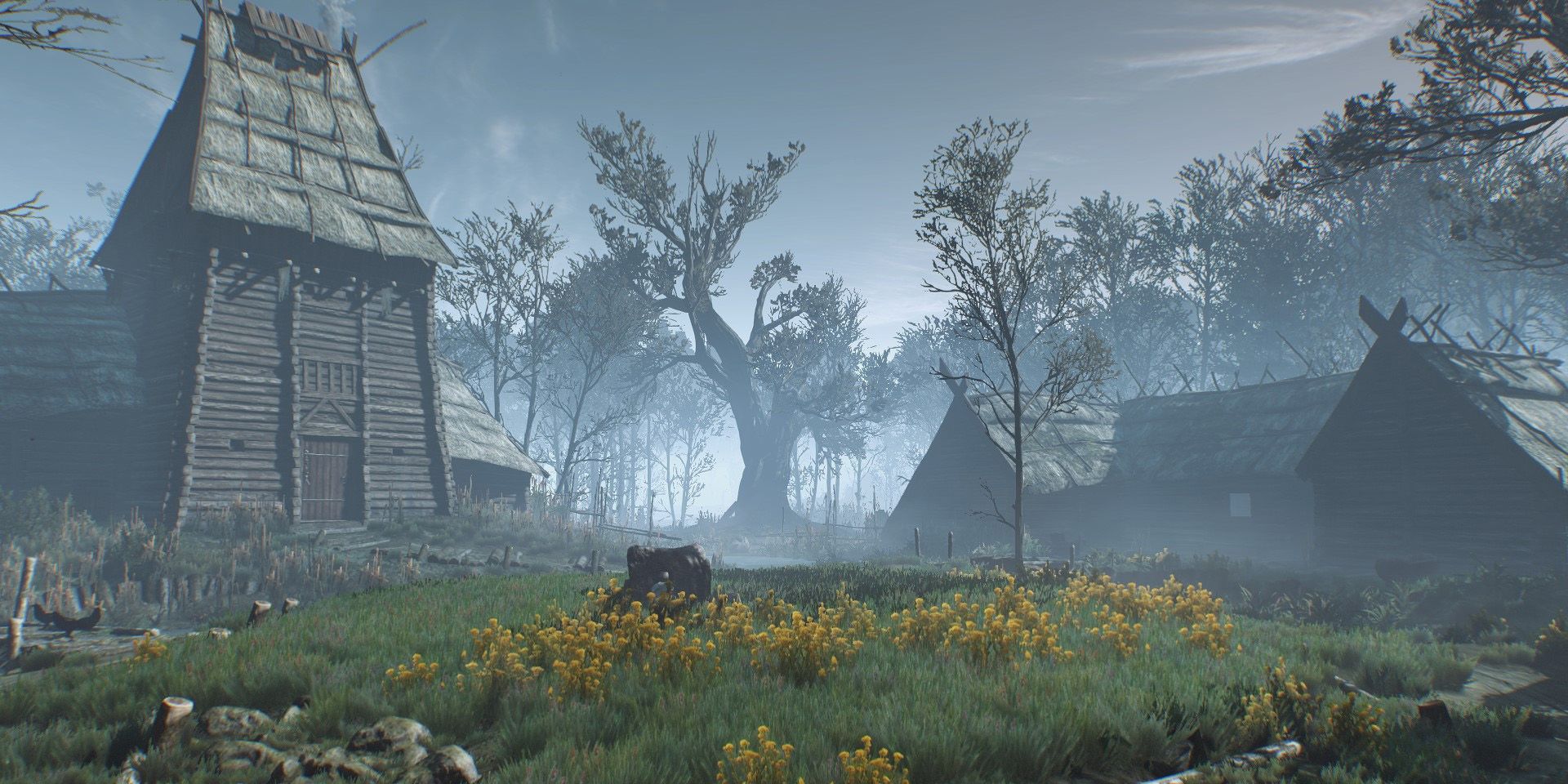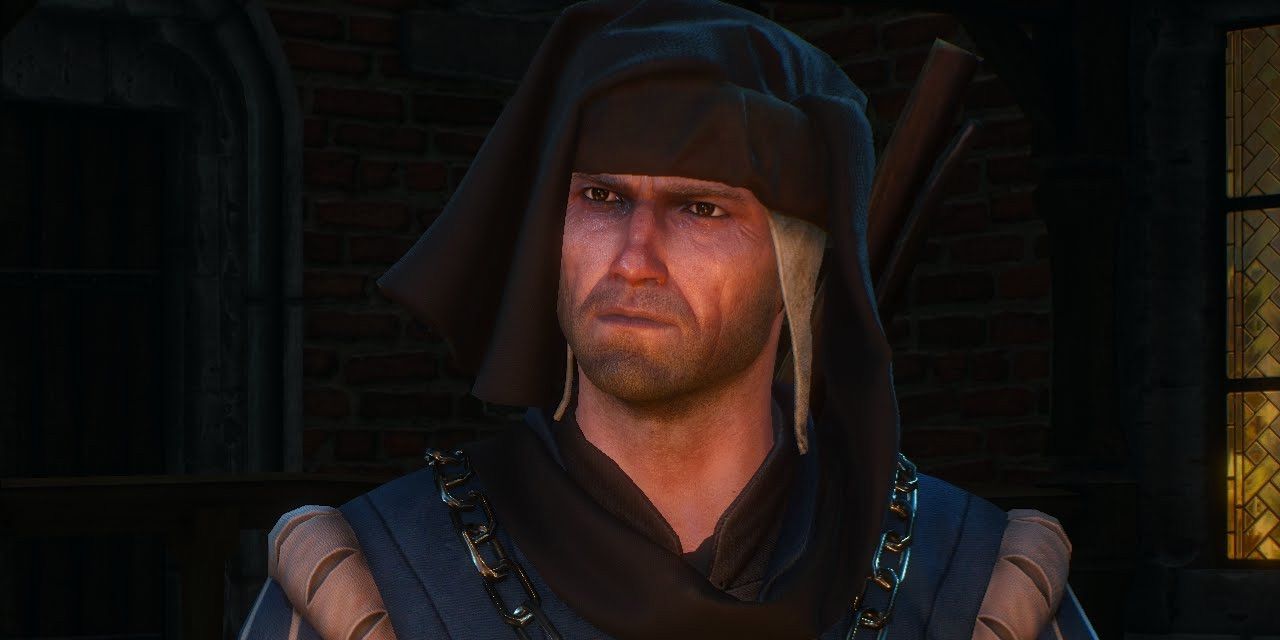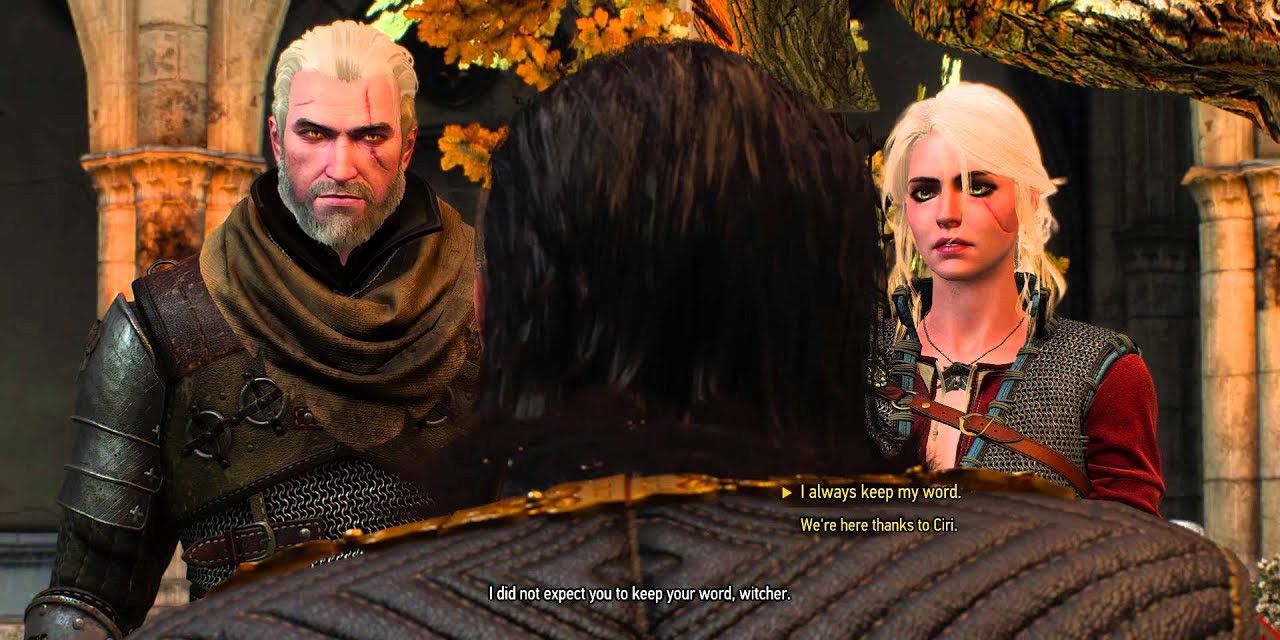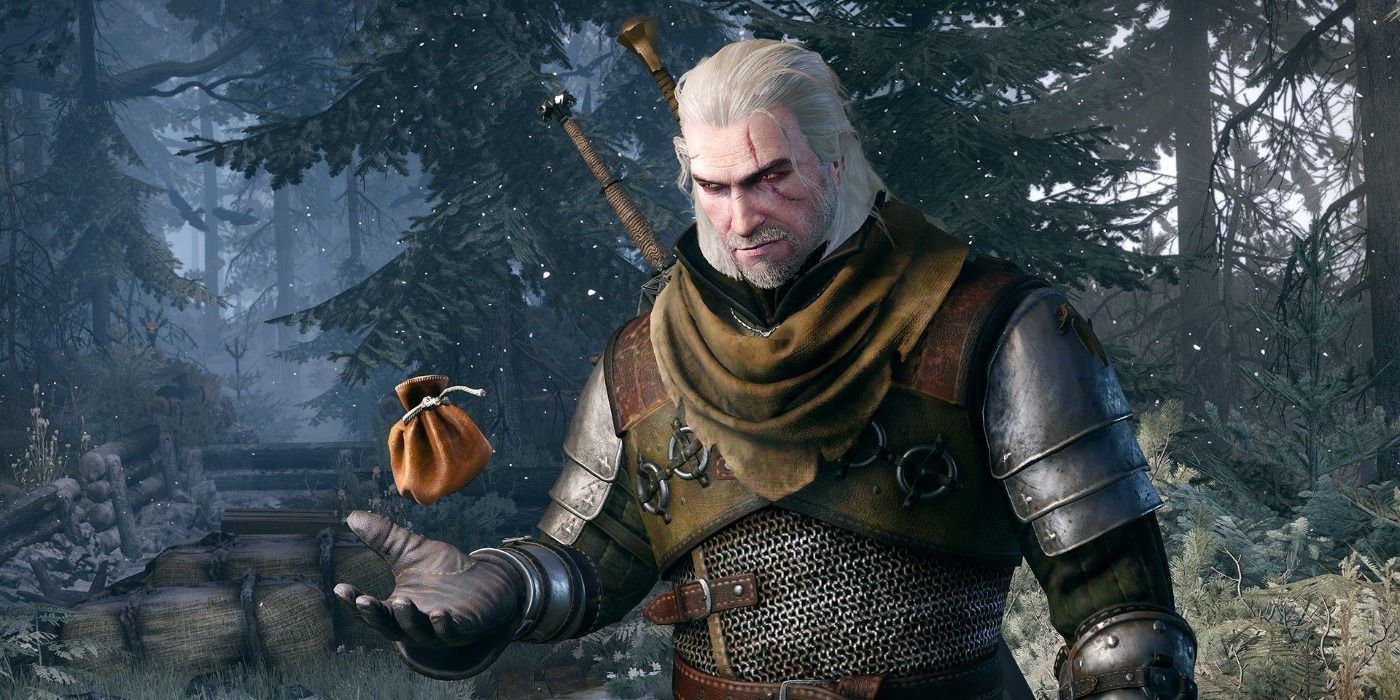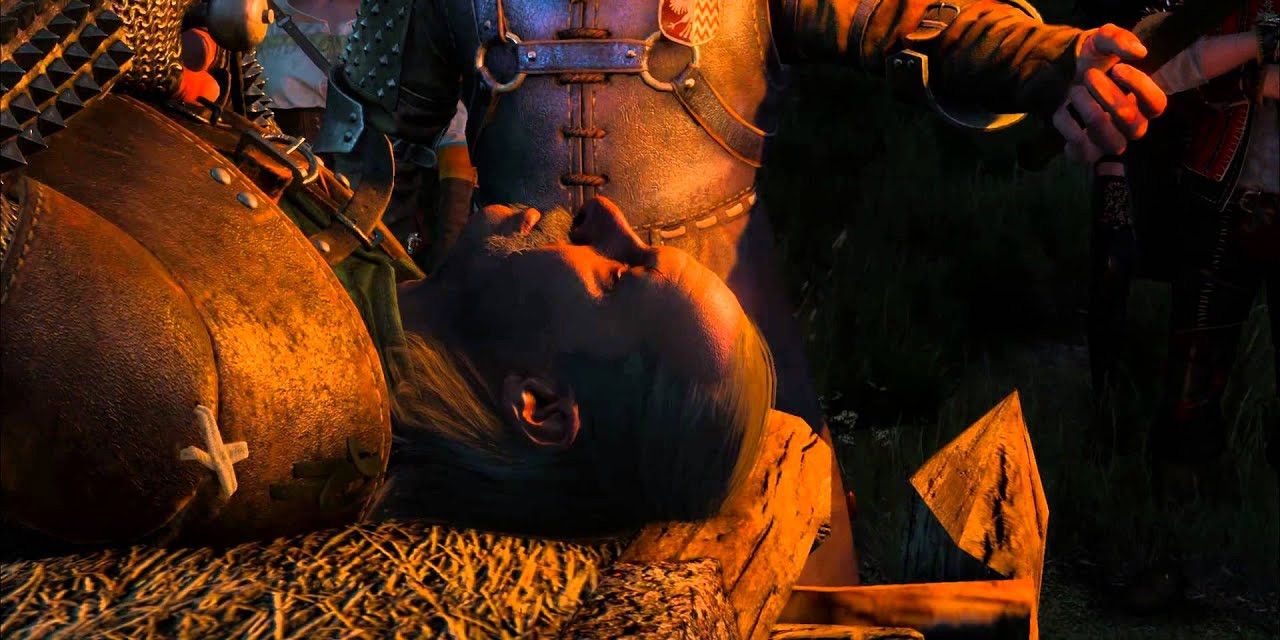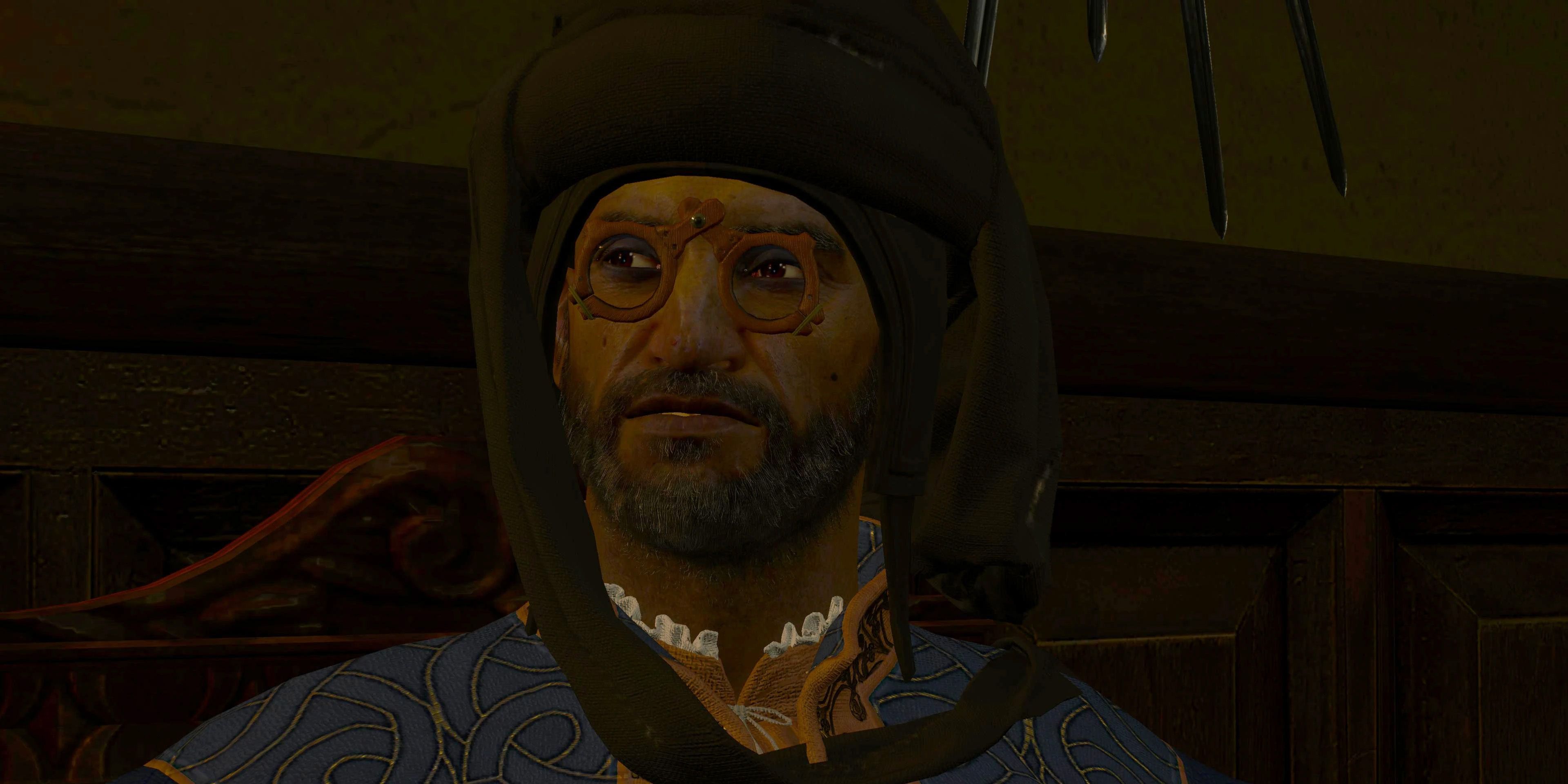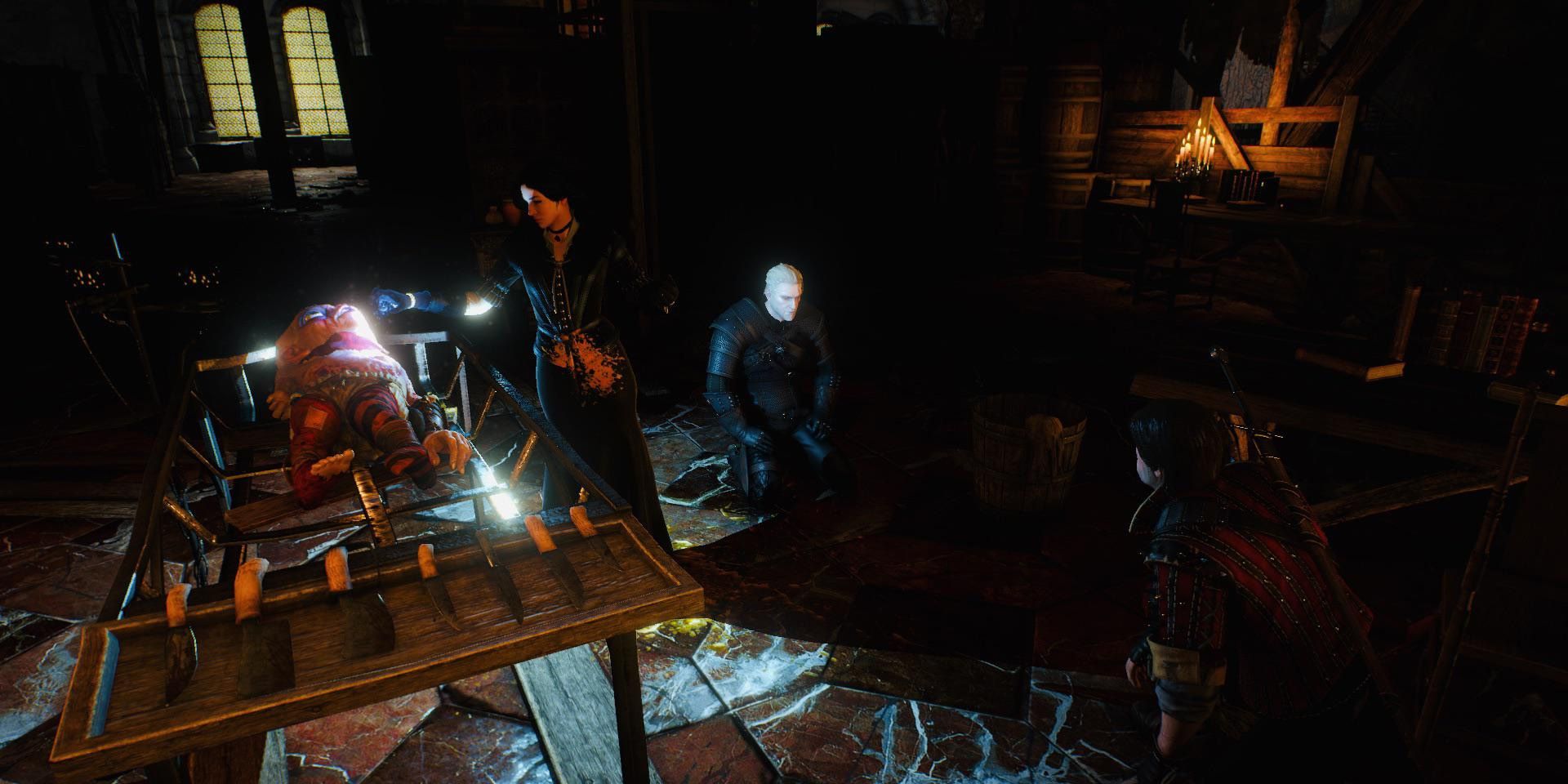Some see Geralt of Rivia as an anti-hero and whilst his actions are at times in keeping with this idea, by definition, at least, it's a position that he just doesn't quite fit. Unlike a traditional anti-hero, Geralt possesses all of the qualities required to be a hero, but simply chooses to suppress them as and when he sees fit. Things are further complicated, of course, by the addition of player choice.
In one of the earliest trailers for The Witcher 3, Geralt states that if he is to choose between one evil and another, he would rather not choose at all. This is all well and good in theory, but while he is certainly able to wash his hands of the decisions, he cannot do the same with the blood that covers them quite so easily. Yes, there are times when he chooses to do the right thing, but there are plenty of others when he's far more villainous than he is heroic.
Updated January 9, 2022, by Tom Bowen: Having served as the main protagonist in three critically acclaimed video games, numerous books, and a hugely popular Netflix series, Geralt of Rivia is perhaps one of the most recognizable characters in modern gaming. All three mediums tend to paint the character as a hero, but, when his actions are analyzed in a bit more detail, a very different picture of the titular Witcher begins to form. In reality, Geralt has performed some pretty despicable acts during his abnormally long lifetime, many of which can be seen during a typical playthrough of The Witcher 3. Granted, a few of them are dependent on player interaction, though most tend to have negative outcomes for somebody regardless of the choices players make.
12 He's Constantly Risking Roach's Life
Those familiar with the series' lore will know that Roach isn't actually a single horse, but instead a name that Geralt gives to all of his mounts. Exactly how many horses have possessed the iconic moniker in total is a bit of a mystery, though, given Geralt's unique line of work, one suspects that more than a few horses have fallen victim to the monsters that he hunts over the years.
Some may see this as an unavoidable occupational hazard, yet others may question whether it's appropriate for Geralt to ride a horse into battle knowing the risks involved. Even those who do see this as a "for the greater good" situation must surely see the callousness of depriving these horses of their own unique names, not to mention Geralt occasionally choosing not to deck them out in potentially life-saving horse armor.
11 He Puts Triss In Danger To Find Dandelion
She may be an incredibly strong and accomplished mage, but Triss has one major weakness: Geralt. Her eagerness to impress the Witcher often leads to him taking advantage of her infatuation, as evidenced by some of the events in Novigrad. While attempting to gain entry into the Church of the Eternal Fire, she offers to pretend to be Geralt's prisoner so that the pair can get inside and Geralt goes along with the plan without really giving it a second thought.
Whether or not players allow Triss to be tortured after finding Caleb Menge is in many ways inconsequential, as they're still leading her into an enclosed area full of witch hunters who mean to do her harm. No matter what happens, Menge and countless witch hunters are killed and Triss is placed in immense danger; all to rescue Dandelion from a situation that's entirely of his own making.
10 He Regularly Mistreats Women
Geralt's misogynistic attitude is questionable at the best of times. There are occasions, however, where it can be downright deplorable. Of course, exactly how bad things get will depend a lot on the player, but that Geralt is capable of acting this way in the first place is pretty horrifying.
Whether he's trying to romance both Tris and Yen or cheating on one of them with other women, he shows himself to be incredibly callous. That he's willing to throw multiple 'I love You's around in a single playthrough is pretty deplorable too, but perhaps not as much as breaking Yen's heart in the secondary quest, The Last Wish.
9 He Kills Hundreds Of People
Geralt was branded the Butcher of Blaviken for killing only a handful of bandits. Three games later, and the number of men and women who have fallen to his steel sword has increased exponentially. With this in mind, one can only imagine what people are calling him now.
Some of his victims arguably had it coming to them, but plenty of them were just doing their jobs. Considering none of the series' creatures or antagonists have a death count anywhere near as high as Geralt's though, there's a strong argument to be made that he is the true evil in The Witcher 3.
8 He Often Breaks His Own Moral Code
Yes, The Witcher's Code is something that Geralt largely made up, but it's also something that he uses to justify many of his actions (or, at times, lack thereof). As such, those around him have come to expect certain things from him and each time that he breaks this code, he's therefore breaching their trust and cheapening his own honor.
Perhaps the most egregious of these instances comes during the secondary quest, Reason of State, in which Geralt conspires to kill King Radovid. As well as failing to remain neutral, his involvement in the plot is also incredibly hypocritical given his earlier criticisms of the Cat School witchers. There's also the whole political situation in Skellige, where Geralt effectively installs a monarch of his own choosing.
7 He Allows Innocents To Die In Crookback Bog
Regardless of which choices are made, the Return to Crookback Bog secondary quest does not have a happy ending. Most choices lead to the death of orphans, but even if Geralt makes a deal to keep them safe, he still finishes the quest with blood on his hands.
Exactly how things play out here depends very much on the player, but it could be argued that none of the choices that Geralt (well, technically, the game) presents to them are at all adequate. Whether the kids die or Anna and the Baron end up being the ones pushing up daisies, Geralt could and should have done more.
6 He Betrays A Loyal Friend
Although Geralt has a lot more history with Roche than he does with Dijkstra, both characters have typically treated him well and consider him to be both a friend and an ally. To allow one of these men to die is, therefore, a huge betrayal on Geralt's part.
Admittedly, he's placed in a very difficult situation, but it's one that could have easily been resolved without bloodshed had Geralt really wanted. He could have talked Dijkstra down or even cast Axii on him to allow Roche, Ves, and Thaler to escape unharmed. Rather than try, however, his first instinct is to either murder Dijkstra or walk away and allow an old friend to be butchered.
5 He Hands Ciri Over To Emhyr
For all intents and purposes, Geralt is Ciri's father. Yes, DNA testing may beg to differ, but just as Emhyr is unfit to rule, he's also not cut out for parenthood. If his actions in The Witcher 3 are anything to go by though, there's an argument to be made that Geralt is equally unworthy of the position.
A real father wouldn't even entertain the idea of handing Ciri over to a man like Emhyr, let alone actually go through with it. Turning down the coin for doing so perhaps makes this a little less villainous (at least then it could be argued that he was doing what he thought was best for her), but it doesn't completely absolve him of his sins. Not by a long shot.
4 He Steals From The Needy
Whether it's a case of Geralt riffling through the pockets of one of his victims or instead searching for valuables in an impoverished family's home, his attitude towards looting is incredibly misguided. What's more, he often does it even when he has no real need for extra coin.
It could certainly be argued that the dead no longer need their possessions, but this argument falls a little flat when it comes to the peasants that he regularly steals from. These people have so little already and yet he seems to have very few qualms about leaving them with absolutely nothing.
3 He Plays Gwent At Vesemir's Funeral
Few mini-games are as enjoyable or as well fleshed out as Gwent and so it's easy to see why Geralt enjoys playing it so much. That said, whipping out one's deck in the middle of a funeral is pretty inappropriate; especially when the person smoldering on the pyre was once a mentor and a father figure of sorts.
Even before the scorching flames have finished consuming Vesemir's lifeless corpse, Geralt seems to think it's okay to challenge Lambert to a friendly card game. Simply put, only a real sociopath would be capable of such disrespectful behavior. Well, technically, a real sociopath who's yet to complete the Gwent Collection quest; as doing so disables the option.
2 He Wagers The Aerondight In A Card Game
While on the subject of Gwent, it's not just coin and cards that Geralt can gamble with. Should he attend the Gwent tournament in Blood and Wine, he's able to wager one of his silver swords. This could be any sword in theory, but it's possible for him to throw the Aerondight into the pot if he so chooses. Given the significance of the blade though, doing so is fairly nefarious.
For those who aren't aware, the Aerondight is a mythical silver sword that is said to have a destiny of its very own. It's never stated exactly what this destiny is, but one suspects that it isn't to be lost in a game of Gwent. Geralt has to prove his dignity, valor, compassion, honor, and wisdom to obtain the sword, but to treat it so carelessly suggests that he actually possesses none of these heroic qualities.
1 He Helps Yen Perform The Trial Of The Grasses On Uma
The Trial of the Grasses is an incredibly dangerous and painful procedure. It's so dangerous, in fact, that only around 35% of people who are subjected to it survive the ordeal. The rest die in agony. With this in mind, no right-minded individual would knowingly subject another person to this kind of punishment and risk. Except for Geralt, that is.
Given the circumstances, it could perhaps be argued that death would have served as a release for Uma, but it's once again a case of Geralt failing to explore any other options. This is made all the worse by Geralt's belief that Uma could possibly have been Ciri rather than Avallac'h, meaning that he was willing to risk his (sort of) daughter's life in order to gain answers.

